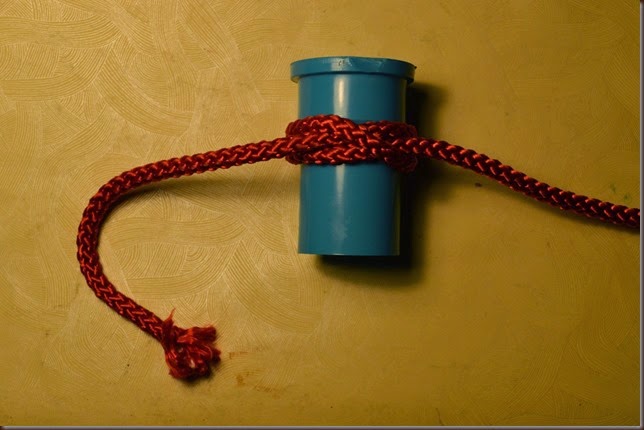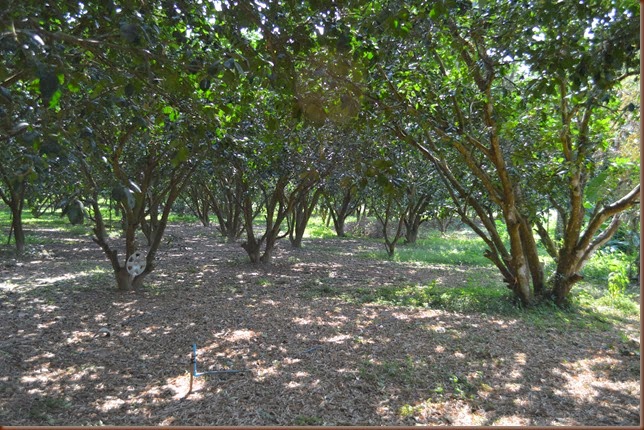I bought a length of PVC pipe today and I was tying it to the roof of our truck. I was thinking, “a clove hitch would be ideal for this,” but it had been years since I had tied one.
Yet, almost without thinking, there it was.
Engrained.
 |
| Clove Hitch |
The clove hitch was one of the first knots I learned. All this goes way back to my childhood.
Many years ago in a town called Otis, Massachusetts, the Girl Scouts had a camp called Sequina. My mom was heavily involved in Girls Scouts and every year our family would make the long drive up route 8—long before the expressway existed and before all the dams were in along the Naugatuck and Farmington Rivers—in order to set up the tents in preparation for the summer camping season.
The tents were set on platforms and attached to the platform with a rope secured with a clove hitch. Though I was too small to reach the cross beam to which the ropes were fastened, my dad told me the name of the knot and showed me how it was tied. He also used this knot when our family would go camping and that is where I first actually attempted to tie one.
Later, it was while I was in the Boy Scouts that I learned to use the knot on my own.
What is so strange is that now I still don’t really have the confidence that I know how to tie the knot correctly. Yet yesterday, when I needed the knot, I could tie it—and I knew I had it right because the rope did not slip on the pipe when I was finished.
So, somehow, this process of early exposure and later practice and use got something so well engrained in my head, that I could do something without thinking about it many years into the future.
We read in the book of Proverbs: Train up a child in the way he should go; even when he is old he will not depart from it. Proverbs 22:6 (ESV)
Here in Thailand, we have become involved in various kinds of children’s ministries. As I was curious about the clove hitch and wanted to learn about it when I was a child, these children are often eager to learn, whether it be English, or Bible stories, or even new games to play. Sometimes I have wondered how much we are getting across, and how much is sticking with them. My experience with the rope yesterday encourages me to keep pushing forward.
 |
| "Training Up" children |










